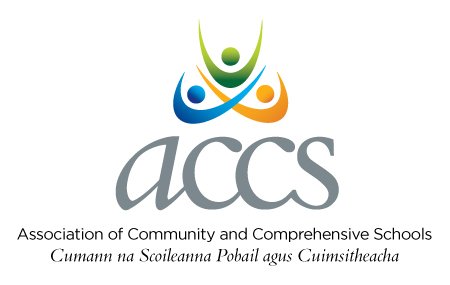School Management:
+ Trusteeship in ACCS Schools
The Education Act, 1998
The Deed of Trust for Community Schools
Instrument and Articles of Management for Comprehensive Schools
The National Trustee Forum
+ Boards of Management
Composition of Boards of Management
Appointment of a Board of Management
Termination of Membership of Boards of Management
Responsibilities of a Board of Management
School Evaluation
Specific Legislative Responsibilities
Board of Management Meetings
The Parents’ Association
The Student Council
+ The Curriculum
Curriculum Development
Junior Certificate and Junior Cycle
Senior Cycle
Guidance and Counselling
+ In School Management and Organisation
Responsibilities of a Principal
The School Year
School Plan and Policy Development
Risk Management - Good Governance
DEIS – Delivering Equality of Opportunity in Schools
Special Educational Needs
Adult and Community Education
Governance Manual for Community and Comprehensive Schools
School Records and Returns
Financial Management
Procurement for Schools
+ General Data Protection Regulation
ACCS Data Protection Policy for Schools
+ Garda Vetting
The National Vetting Bureau
Vetting of Teaching Staff
eVetting of Non Teaching Staff
Retrospective Vetting of Employees
+ State Indemnity - School Insurance
State Indemnity and the Role of SCA
State Indemnity Confirmation Statements
Work Experience
Personal Accident Insurance
Accident Reporting
Claims Management
Use of private vehicles for work
Contacting the State Claims Agency (SCA)
+ Health and Safety
Principal Health and Safety Legislation
Guidelines on Managing Safety and Health in Post Primary Schools
Use of School Equipment and Facilities - Risk Advisory Notices
Accident Reporting
Duties of the Board of Management
Fire Precautions
Disposal of Unwanted Chemical Substances
Bullying and Stress as a Health and Safety Issue
Duties of Employees
“Reasonably Practicable”
+ The Care and Management of Students
General Responsibilities of the Board of Management
Student Enrolment and Attendance
The School Code of Behaviour
Child Protection
Bullying and Harassment
Managing Chronic Health Conditions in School
Mental Health Promotion and Suicide Prevention
Parental Complaints against a Teacher
Supervision
Out of School Activities
Work Experience
Critical Incidents
Liability for Personal Property
Provision of Information to Students, Parents and Teachers
+ Religious Education and Worship
Religious Ethos of the School
Personal Suitability of Religious Education Teachers
Withdrawal of a Student from Religious Education and Worship
Religious Practice
The School Chaplain
+ ACCS Annual Convention
Convention Presentations 2018
ACCS Convention Handbook 2018
2018 Convention Handbook Contents 3
2018 Convention Handbook Contents 2
2018 Convention Handbook Contents 1
ACCS Convention 2017
Convention 2017 Presentations
Retrospective Vetting of Employees
Last updated: Fri, Jun 23rd, 2017 11:18:45 am
Until February 0f 2017 schools were not required to obtain vetting disclosures in respect of existing employees, volunteers, sports coaches etc. who undertake relevant work or activities in the school under contracts of employment or other arrangements that were in place prior to 29 April 2016.
Section 21 of the Vetting Act has now been activated under which a relevant organisation (which includes a school authority) is obliged to ensure that a vetting application is made in respect of individuals currently employed, contracted or permitted by it to undertake relevant work or activities with children or vulnerable persons, where those individuals have never previously been Garda vetted. Such vetting is referred to as a “retrospective vetting”. The Minister for Justice and Equality has prescribed that retrospective vetting applications must be made before 31 December 2017.
The Vetting Act provides that where a relevant organisation (which includes a school authority) fails, without reasonable excuse, to comply with the Act’s retrospective vetting requirements it is a criminal offence punishable by a fine of up to €10,000 or a prison term of up to 5 years or both
Further information in relation to the retrospective vetting requirements is set out in Circular 0016/2017 and in CL 0016/2017 Frequently Asked Questions. This includes information in relation to who needs to be retrospectively vetted and the practical arrangements that are in place to support such vetting.

